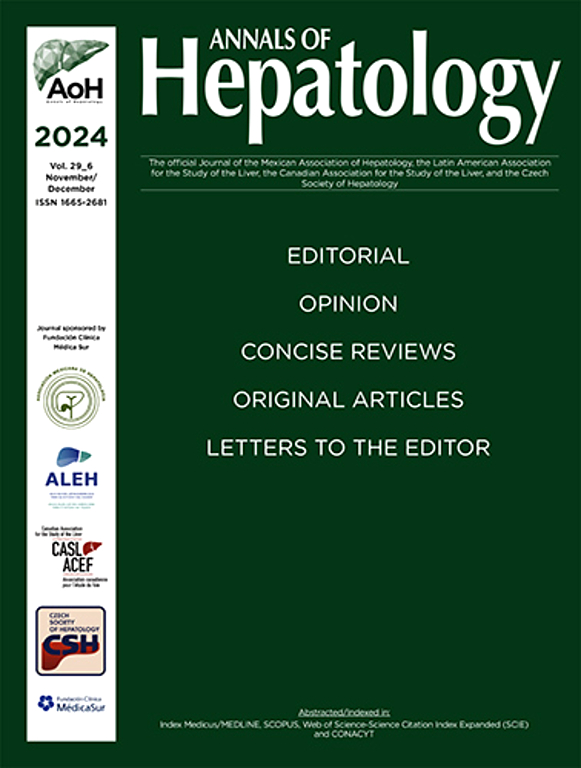从病人到专家:临床卓越计划中肝癌自我管理的教育
IF 4.4
3区 医学
Q2 GASTROENTEROLOGY & HEPATOLOGY
引用次数: 0
摘要
前言和目的对患者和护理人员进行教育对于提高对肝细胞癌的认识、支持自我管理和促进知情决策至关重要。在Fundación Cardioinfantil,作为临床卓越计划的一部分,实施了结构化的教育计划。这项工作旨在描述该计划的实施,以及在患者知识、治疗依从性和家庭护理连续性方面取得的进展。材料和方法进行了一项描述性横断面研究,以描述向肝细胞癌患者及其护理人员提供的教育过程。对患者进行初步评估以确定其疾病知识水平,并将其分为基础、中级和高级水平。在此基础上,他们接受个性化的教育计划,包括印刷材料和指导课程。在随访期间每季度评估进展情况,以加强或调整干预措施。结果该项目实施以来,已为106名患者提供了教育。目前,68%的患者已发展到中级或高级水平,而32%的患者仍处于基本水平,因为他们处于项目的早期阶段或等待开始治疗。在40名活跃患者中,28名达到了高级教育水平,这反映在对疾病的更大理解、对警告信号的识别以及临床随访期间报告的依从性改善。结论:在肝细胞癌临床卓越项目中实施的临床策略已被证明是有效的,通过结构化和个性化的方法赋予患者权力。教育的进步强调了将教育融入临床护理的价值,使患者能够积极自信地参与管理他们的病情。这一经验代表了一种可复制的模式,可适用于其他慢性病护理举措,特别是在拉丁美洲高度复杂的卫生保健环境中。本文章由计算机程序翻译,如有差异,请以英文原文为准。
FROM PATIENT TO EXPERT: EDUCATION FOR SELF-MANAGEMENT OF HEPATOCELLULAR CARCINOMA IN A CLINICAL EXCELLENCE PROGRAM
Introduction and Objectives
Education for patients and caregivers is essential to improve understanding of hepatocellular carcinoma, support self-management, and promote informed decisions. At Fundación Cardioinfantil, a structured educational program was implemented as part of the Clinical Excellence Program. This work aims to describe the program’s implementation, and the progress achieved in patient knowledge, treatment adherence, and continuity of care at home.
Materials and Methods
A descriptive, cross-sectional study was conducted to describe the educational process delivered to patients with hepatocellular carcinoma and their caregivers. Patients are initially assessed to determine their level of disease knowledge and classified into basic, intermediate, or advanced levels. Based on this, they receive a personalized education plan with printed materials and guided sessions. Progress is evaluated quarterly during follow-up visits to reinforce or adjust the intervention.
Results
Since its implementation, the program has provided education to 106 patients. Currently, 68% have progressed to intermediate or advanced levels, while 32% remain at the basic level, either because they are in the early stages of the program or awaiting the start of treatment. Among the 40 active patients, 28 have reached an advanced educational level, reflected in greater disease understanding, recognition of warning signs, and improved adherence reported during clinical follow-up.
Conclusions
Educational strategy implemented within the Hepatocellular Carcinoma Clinical Excellence Program has proven effective in empowering patients through a structured and personalized approach. The educational progress underscores the value of integrating education into clinical care, allowing patients to actively and confidently participate in managing their condition. This experience represents a replicable model that could be adapted to other chronic disease care initiatives, particularly in high-complexity healthcare settings across Latin America.
求助全文
通过发布文献求助,成功后即可免费获取论文全文。
去求助
来源期刊

Annals of hepatology
医学-胃肠肝病学
CiteScore
7.90
自引率
2.60%
发文量
183
审稿时长
4-8 weeks
期刊介绍:
Annals of Hepatology publishes original research on the biology and diseases of the liver in both humans and experimental models. Contributions may be submitted as regular articles. The journal also publishes concise reviews of both basic and clinical topics.
 求助内容:
求助内容: 应助结果提醒方式:
应助结果提醒方式:


